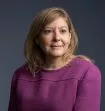Over the past four years, the Securities and Exchange Commission ("SEC") has generally maintained a "strict neutrality" policy with respect to replacement rates for U.S. dollar LIBOR, or the London InterBank Offered Rate. The SEC's concerns have been mainly with respect to clear disclosure by issuers, broker-dealers and others of any material effects relating to the upcoming LIBOR cessation.1 This nonjudgmental approach came to an end recently when Chair Gensler criticized the Bloomberg Short-Term Bank Yield Index, or "BSBY," as a credit-sensitive USD LIBOR replacement.
In remarks before the Financial Stability Oversight Council on June 11, 2021, Chair Gensler stated that BSBY has many of the same problems as LIBOR: the actual number of transactions underpinning BSBY are insufficient, and the some of the markets measured to calculate BSBY are unstable.2
BSBY is a forward-looking term rate based on transaction data for commercial paper, certificates of deposit and TRACE-reported senior unsecured corporate bonds. Chair Gensler noted that the commercial paper market dried up for about five weeks in 2020 during the early part of the pandemic. He also compared LIBOR to BSBY in that both are "inverted pyramids," in that a small amount of measurable data underpins a large number of transactions, compared to the Secured Overnight Funding Rate ("SOFR"), which is based on a nearly trillion dollar market. According to Chair Gensler, this "mismatch" is an incentive for manipulation.
BSBY is an International Organization of Securities Commissions (IOSCO)-compliant rate. There are a number of features of BSBY that are different from LIBOR. For example, no bank makes a submission to Bloomberg for inclusion in the BSBY calculations. Rather, Bloomberg uses available market data. The data is anonymized, and none of the 34 Global Systemically Important Banks (G-SIBs) from which the data is drawn are aware of how their trades are being used to calculate BSBY. There are currently 16 panel banks that make submissions for USD LIBOR, as opposed to 34 G-SIBs from which BSBY data is drawn. Lastly, BSBY uses a three-day rolling window to calculate the index level. If there are insufficient transactions, the index falls back to a four-day window and, if necessary, a five-day window. If a five-day window doesn't produce a sufficient number of transactions, then the previous day's index level is used.
The BSBY methodology does not provide a fallback index in the event that BSBY terminates.3 However, issuers are free to choose a replacement rate and include that rate in their documentation. At least one bulge bracket issuer that issued a BSBY floating rate note has SOFR as a replacement rate.
The reason that there are credit sensitive rates like BSBY is that the market demands it, and SOFR doesn't have a credit element. Even with the advent of forward-looking term SOFR, there will still be demand for credit-sensitive rates like BSBY, Ameribor or the ICE Bank Yield Index.
Originally published in REVERSEinquiries: Volume 4, Issue
4.
Click here to read the articles in this latest
edition.
Footnotes
1. We discussed the SEC's concerns about LIBOR disclosure and its approach to SOFR at: REVERSEinquiries Newsletter, Volume 2, Issue 7. Former Chair Clayton did question the mechanics of SOFR as a replacement for LIBOR, which we discussed at: REVERSEinquiries Newsletter, Volume 2, Issue 11.
2. The Public Statement is available at: SEC.gov | Prepared Remarks Before the Financial Stability Oversight Council.
3. The BSBY methodology is available at: BSBY Methodology (May 2021).
Visit us at mayerbrown.com
Mayer Brown is a global legal services provider comprising legal practices that are separate entities (the "Mayer Brown Practices"). The Mayer Brown Practices are: Mayer Brown LLP and Mayer Brown Europe - Brussels LLP, both limited liability partnerships established in Illinois USA; Mayer Brown International LLP, a limited liability partnership incorporated in England and Wales (authorized and regulated by the Solicitors Regulation Authority and registered in England and Wales number OC 303359); Mayer Brown, a SELAS established in France; Mayer Brown JSM, a Hong Kong partnership and its associated entities in Asia; and Tauil & Chequer Advogados, a Brazilian law partnership with which Mayer Brown is associated. "Mayer Brown" and the Mayer Brown logo are the trademarks of the Mayer Brown Practices in their respective jurisdictions.
© Copyright 2020. The Mayer Brown Practices. All rights reserved.
This Mayer Brown article provides information and comments on legal issues and developments of interest. The foregoing is not a comprehensive treatment of the subject matter covered and is not intended to provide legal advice. Readers should seek specific legal advice before taking any action with respect to the matters discussed herein.


